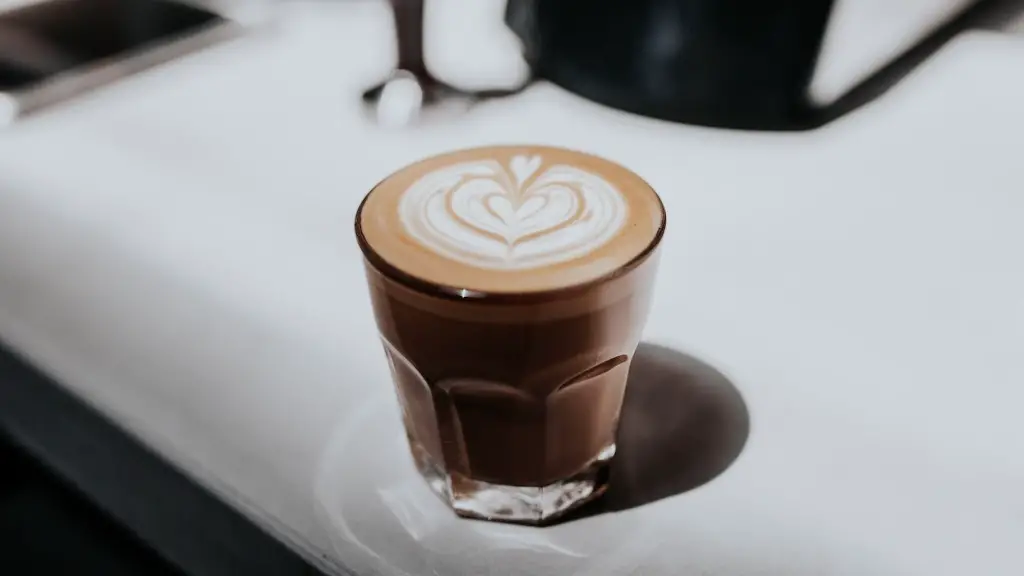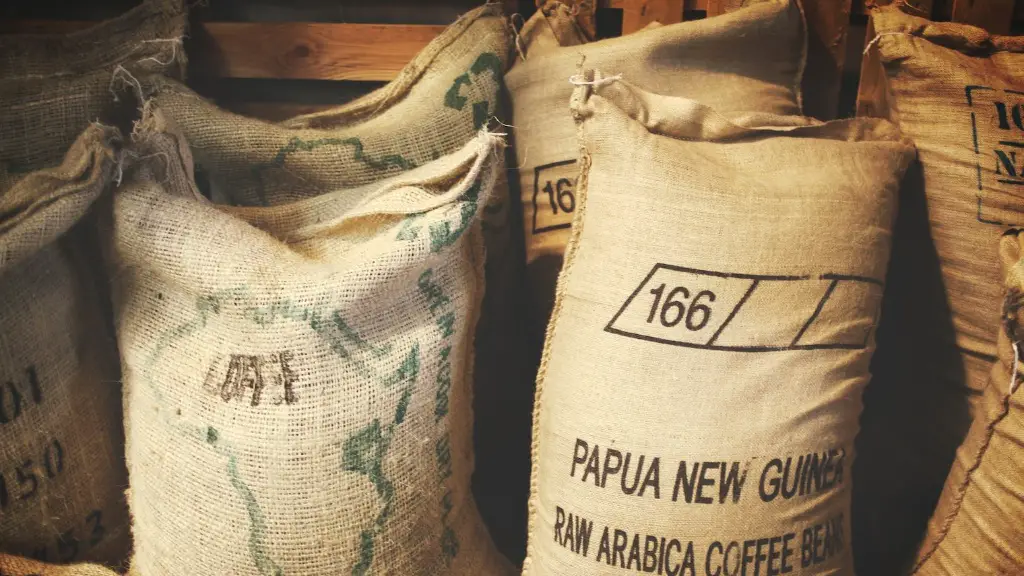I love my coffee and it seems like I’m always sipping quickly through my mug until it’s suddenly empty. But why do I drink my coffee so fast? It turns out that this behavior is quite common, and there are a variety of explanations why.
When it comes to our habits around coffee drinking, most of us have formed them through trial and error. We might find that we like to take small sips, or large to sip down a greedy gulp. But why do we form these specific habits?
It is believed that some of the main causes for drinking coffee so quickly can be attributed to one of three main emotions: anxiety, pleasure, or boredom. Anxiety can push us to consume coffee as a way to feel more alert, while pleasure may come from connecting coffee with moments of reprieve, or just because of the taste. For some, coffee becomes a type of self-medication against boredom, with the fast sips providing a brief respite.
Caffeine is known to affect our adrenal system more than any other drug. Caffeine signals our body to release hormones such as adrenaline, which can trigger fast drinking by increasing our metabolism and focus. Studies have also shown that coffee can enhance cognitive function, and reduce stress and anxiety.
The speed at which we drink coffee may also depend on the type of coffee we choose. By opting for a strong blend with higher concentrations of caffeine, such as espresso, our body might be reaching out for higher doses of caffeine more quickly.
Lastly, it’s not uncommon for our habits to be shaped by our environment. One study has looked at how quickly people drink coffee when in a group setting, and found that the social setting could be to blame for fast coffee sipping. The researchers argued that coffee is often a collective activity, and we might find ourselves unconsciously mirroring the drinking speed of those around us.
Coffee’s Effects on Mental Health
We may drink coffee for its energizing effects, but its effects on mental health should not be overlooked. It may be beneficial for people to slow down when it comes to their coffee drinking, as higher rates of caffeine intake have been linked to an increased risk of mental health issues such as anxiety, depression, irritability and restlessness.
Coffee can also interfere with our sleeping patterns, as the caffeine can still be in our system eight hours after drinking it. This lack of sleep can cause problems such as fatigue, lack of focus, and impaired decision making.
So, while coffee can provide some short-term benefits, it’s important to be mindful of how quickly we’re consuming it. The recommended caffeine intake for adults is less than 400mg per day, so it’s important to consider which type of coffee we’re drinking, as some may contain more caffeine than others.
Coffee Breaks and Social Interacting
Coffee is ubiquitous in our society and it is often used as a way to interact and share a meaningful moment with others. This could be why some of us find ourselves drinking our coffee with more haste, as we may be racing to get through and finish our conversation.
But slowing down when it comes to our coffee consumption may actually be beneficial for forming closer connections. While it may seem insignificant, taking the time to sip your coffee and look into the eyes of the person in front of you fosters a deeper connection, one that could last much longer than the moment.
So, while the reasons why we may drink our coffee so quickly are varied, it’s always important to remember that taking the time to enjoy our coffee may be sometimes a healthier option.
Health Benefits of Coffee
Despite the potential risks of drinking coffee too quickly, it could still be beneficial for certain aspects of our health. Coffee can be a rich source of antioxidants that can help reduce oxidative damage in the body. It can also assist with reducing inflammation, which can improve digestive health and promote wellbeing. In addition, research has linked coffee consumption to improved cardiovascular, metabolic and cognitive health.
Coffee could have a positive impact on our mental health too. Studies have suggested that coffee consumption can reduce the risk of suicide and depression, with some research going as far as to recommend drinking up to three cups of coffee a day.
But of course, it’s important to remember that too much of a good thing isn’t necessarily beneficial. Thus, it’s always important to be mindful of the amount of caffeine we’re taking in each day, and to consider slowing down our sipping.
Alternatives to Drinking Coffee Too Fast
For those looking to slow down their coffee drinking without compromising on their caffeine intake, there are plenty of alternatives to choose from. Decaffeinated coffee is a great option, as it can still provide the same enjoyment without the unwanted side-effects of caffeine. Alternatively, there are numerous other beverages, such as tea and low-caffeine energy drinks, which may boost energy without the risks associated with too much caffeine.
There is also the option of mindful drinking, which involves concentrating on the texture, smell and taste of the coffee. By slowing down and learning to appreciate our coffee, we can create an enjoyable experience and avoid the risks associated with drinking it too quickly.
When it comes to our coffee drinking habits, it’s important to remember that moderation is key. Slowing down and being mindful of how quickly we drink our coffee can be beneficial for our health and wellbeing, and may even help us foster meaningful connections with the people around us.
Coffee’s Impact on Blood Sugar Levels
Coffee can also have a significant effect on our blood sugar levels. In addition to its caffeine content, coffee also contains phytochemicals which can interfere with our blood sugar levels. Too much coffee can cause an increase in blood sugar levels, putting those with diabetes and pre-diabetes at an increased risk.
For those looking to reduce the impact of coffee on their blood sugar levels, there are a few things to consider. It might be beneficial to opt for decaffeinated coffee, which still provides many of the same health benefits without increasing blood sugar levels. Additionally, low-sugar drinks such as teas and tisanes may be a safer alternative.
It may also be helpful to consider adding milk to our coffee. Milk can help to reduce the impact of coffee on our blood glucose levels, as it contains proteins and fats which slow down the absorption of caffeine and other phytochemicals.
Switching to lactose-free milk or plant-based milk such as almond milk or oat milk may also be beneficial for reducing spikes in blood sugar. Whatever the choice, it’s important to be mindful of how much caffeine we’re taking in, and how quickly we’re drinking our coffee.
The Risks and Benefits of Coffee Drinking
Our coffee drinking habits can have both positive and negative impacts on our health and wellbeing. When it comes to our mental health, research has suggested that drinking three cups of coffee a day may reduce the risk of suicide and depression. But it’s important to remember that too much of a good thing can be problematic, as higher rates of caffeine intake have been linked to an increased risk of mental health issues such as anxiety, irritability and restlessness.
Coffee can also have an impact on our blood sugar levels. Too much coffee can cause an increase in blood sugar levels, putting those with diabetes and pre-diabetes at an increased risk. But there are ways to reduce its impact, such as opting for decaffeinated coffee and low-sugar alternatives.
The bottom line is that coffee can be beneficial for our health, but it’s important to be mindful of how quickly we’re consuming it. Taking the time to enjoy our coffee and be mindful of our caffeine intake can make for a healthier, more enjoyable coffee experience.





